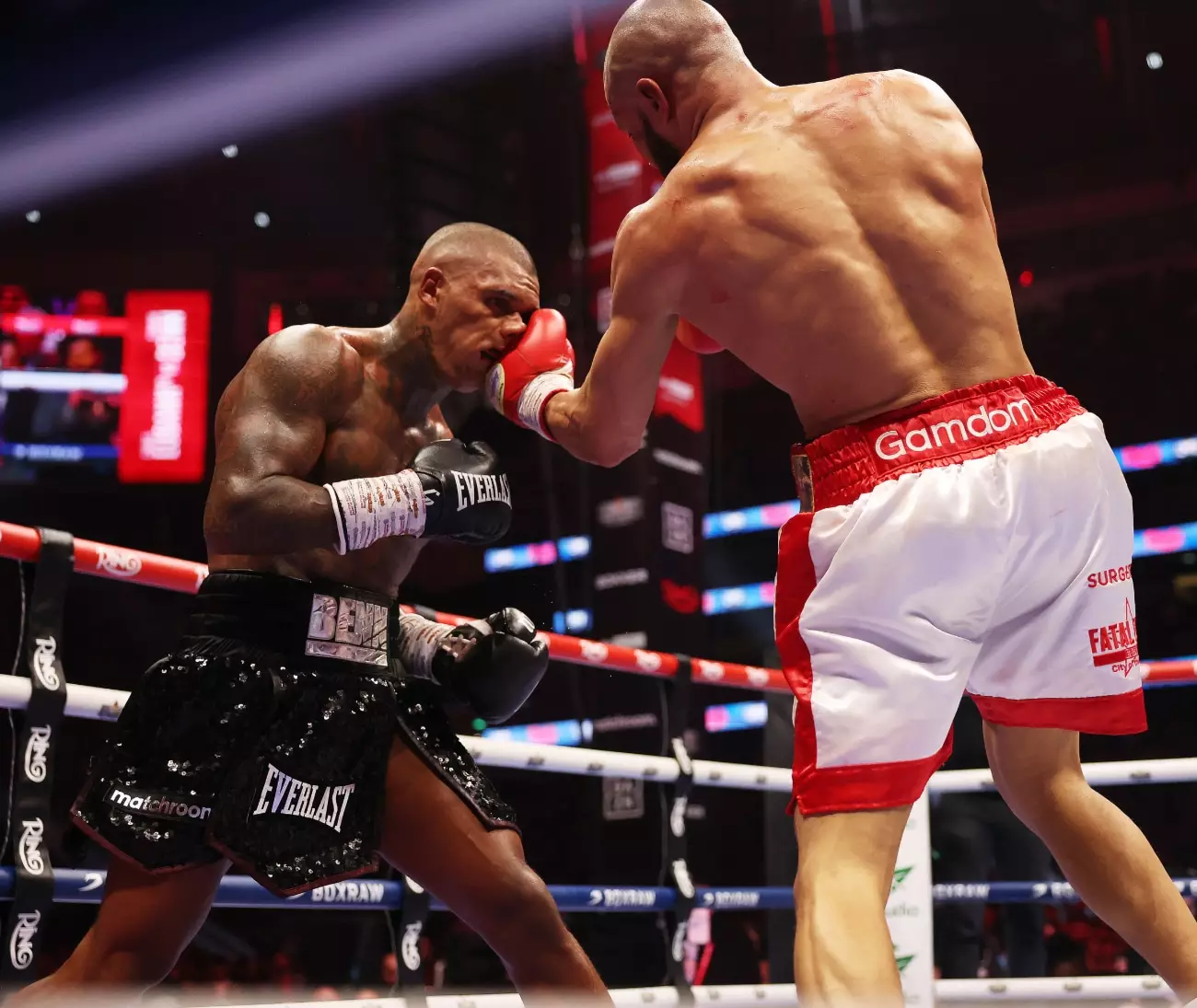In the realm of professional boxing, fights can pivot on the razor-thin margins of momentum, and the recent clash between Conor Benn and Chris Eubank Jr. exemplified this volatile nature of the sport. Initially, Benn, a young fighter with a record of 23 wins—14 by knockout—displayed the prowess that had earned him recognition. He began the bout with a fiery intensity, leveraging his speed and power to establish control early on. However, as the rounds progressed, the match revealed a more sobering narrative for Benn and his supporters.
Despite his blistering start, the middle rounds were a stark contrast, showing a fighter who not only lost offensive momentum but also appeared to psychologically unravel under the pressure of an astute opponent. Eubank Jr., seasoned and shrewd with a record of 35 wins, seized this opportunity, employing tactics that played to his strengths while unraveling Benn’s strategy. This fight transitioned from promise to a stark reality check for the younger fighter.
The Judge’s Dilemma: Discrepancies in Scoring
The unanimous decision awarded to Eubank Jr. reflected a broader sentiment about the bout’s nature: it wasn’t just a tactical victory but a demonstration of experience outpacing youth. The scorecards reading 116-112 suggested a closer fight than many observers, including Benn’s promoter Eddie Hearn, believed was the case. Hearn labeled the fight as “razor-close,” but the perception from ringside and on social media skewed significantly in favor of Eubank Jr.
In the world of boxing, scoring can often be contentious. While Hearn’s criticism of the judges presented a passionate defense of his fighter, one must question the validity of such claims when the narrative of the fight demonstrated a clear shift toward Eubank’s dominance. The statistics paint a more evident picture, as many spectators observed insurmountable disparity in performance, particularly after the third round when Benn seemed a shadow of his earlier self.
Methodical Tactics and Mental Detachment
Eubank Jr.’s tactical shift was significant; once he absorbed Benn’s initial onslaught, he countered with increased aggression. This psychological and strategic evolution in the fight laid bare a fundamental chink in Benn’s armor—his inability to adapt to the changing dynamics. Post the third round, it was as if a lightswitch turned off for Benn. The agility and power that marked the initial exchanges faded, giving way to hesitance and, eventually, resignation.
This mental fatigue was not just a physical deficit; it was a deeper unraveling that revealed not just a lack of inside fighting skills but an alarming gap in adaptability. In professional boxing, particularly at elite levels, flexibility and mental fortitude are paramount. Eubank Jr. capitalized on this weakness, elevating his volume punching while forcing Benn into a tactical corner where he struggled to operate.
Lessons Learned: The Road Ahead for Conor Benn
For Conor Benn, this fight is undoubtedly a wake-up call—one that could either send him spiraling into obscurity or ignite a pivotal transformation in his training and mental approach. The backlash from fans and purists alike is not merely disparaging; it serves as a critical review of the capabilities of a fighter who once seemed on the brink of breakout stardom. He must dissect his performance, welcoming harsh truths about his intra-fight discipline and technical limitations.
In this sport, particularly in a division as ferocious as middleweight, one cannot afford the luxury of underestimating the profundity of experience. As Benn reflects on this bout, the lesson here is seminal: talent alone does not win fights; strategy, resilience, and the capacity to adjust mid-fight are key determinants of success in the ring. The outcome against Eubank Jr. may have stung, but it also offers an opportunity for growth. By embracing this adversity, Benn can reclaim his trajectory and prepare for a future where he harnesses not just his physical gifts but also the tactical acumen required to triumph against the best.

